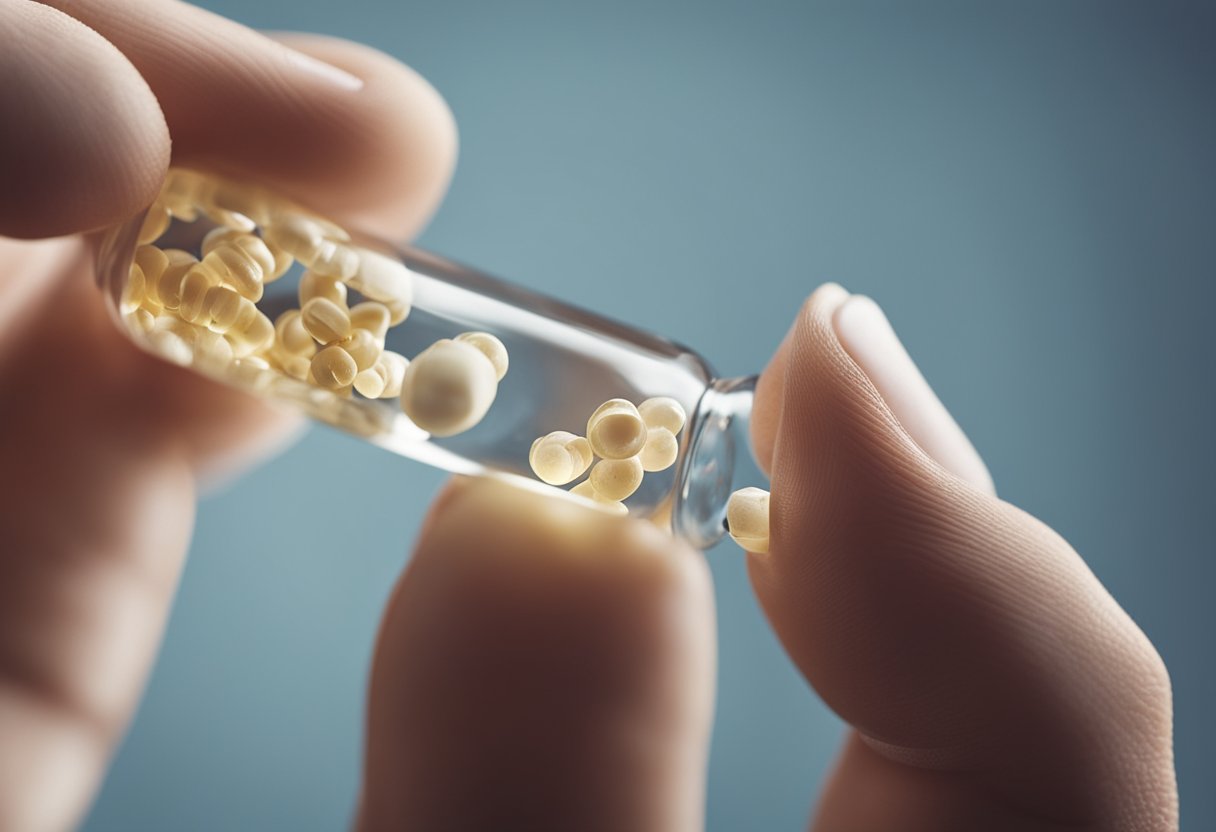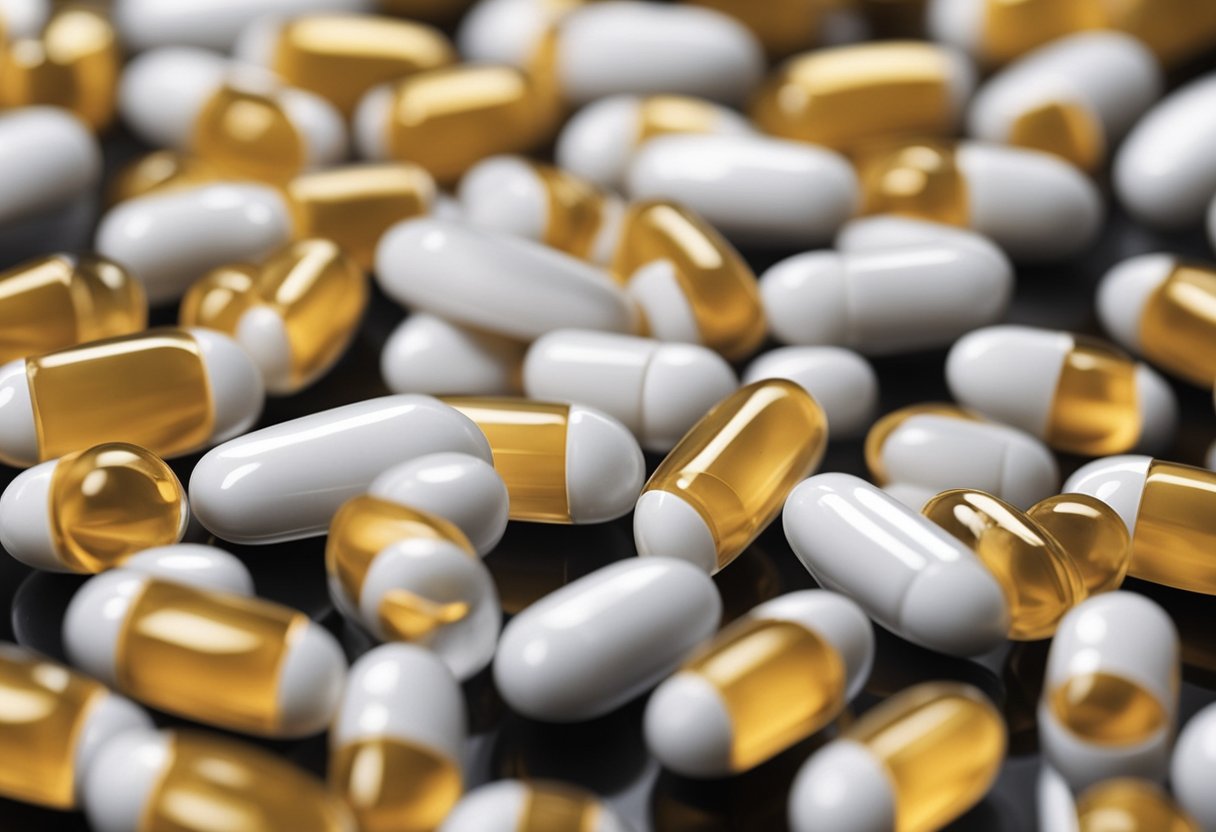Opening probiotic capsules is a common consideration if you have difficulty swallowing pills or if you prefer to administer supplements in a different form. Probiotics are live bacteria that play a key role in maintaining gut health by balancing the intestinal flora. Some individuals opt to open the capsules to mix the contents with food or drink, typically when administering to children or for personal convenience.

It’s important to understand how this practice might affect the efficacy of the probiotics. The majority of probiotic capsules are designed to protect the bacteria as they pass through the harsh environment of the stomach, ensuring they reach the intestines where they are most effective. However, consuming the contents of a capsule without its protective shell might expose the bacteria to conditions that could reduce their viability.
When considering whether to open the capsule, it is essential to check the specific product instructions or consult with a healthcare provider. Some formulations are indeed designed to remain effective even after the capsule has been opened, making them suitable for mixing with cool, non-acidic foods and beverages. This approach allows flexibility in taking probiotics while still garnering the intended health benefits.
Overview of Probiotics

Probiotics play a crucial role in promoting your gut health. Understanding what they are and the different types available helps you make informed choices about your well-being.
Definition and Purpose
Probiotics are live microorganisms that, when administered in adequate amounts, confer a health benefit on the host. Essentially, they are good bacteria or yeasts that are similar to the beneficial microorganisms found naturally in your body. The primary purpose of probiotics is to maintain or restore the natural balance of microflora in your gut. This can help to:
- Support a healthy digestive system
- Boost the immune function
- Potentially improve certain medical conditions
Types of Probiotics
There are numerous strains of probiotics, but they can be generally categorized into a few major groups:
- Lactobacillus: Found in yogurt and other fermented foods, Lactobacillus can help with diarrhea and may be beneficial for those who can’t digest lactose.
- Bifidobacterium: Commonly seen in some dairy products, this group is believed to help ease symptoms of irritable bowel syndrome (IBS).
- Saccharomyces boulardii: A type of yeast found in probiotics that may combat gastrointestinal issues like diarrhea.
It’s important to note that different strains have different effects on the body, and a healthcare provider can recommend the appropriate type based on your specific health needs.
Probiotic Capsules

In exploring probiotic capsules, it’s essential to understand their design and the way they release beneficial bacteria into your system.
Design and Composition
Probiotic capsules are meticulously engineered to deliver live beneficial bacteria to your gut. The strains contained within are selected for their health benefits and ability to survive the journey through the harsh environment of the stomach.
- Materials: The capsules are often made from a variety of materials designed for durability, including:
- Hypromellose (vegetarian capsules)
- Gelatin (non-vegetarian capsules)
- Contents: Inside, you’ll typically find probiotic strains in a freeze-dried powder form, which may include:
- Lactobacillus species
- Bifidobacterium species
Mechanisms of Release
The release mechanisms of probiotic capsules ensure the bacteria reach the gut alive and active.
- Delayed Release: Some capsules have enteric coatings to bypass stomach acid.
- Immediate Release: Other capsules dissolve in the stomach, releasing bacteria that are resistant to stomach acid.
Remember, while you can open some capsules to mix with food or beverages, others are designed specifically for protection against stomach acid and should not be tampered with to maintain effectiveness.
Usage Guidelines
In this section, you’ll find essential instructions on how to properly use probiotic capsules for optimal results.
Intended Use
Probiotic capsules are designed to deliver live microorganisms beneficial to your health. You can open the capsules and mix the contents with cool, non-acidic food or drink if you find swallowing capsules difficult or if you prefer direct administration.
Dosage and Administration
The dosage for probiotic supplements varies depending on the specific strain and product. Always follow the recommended dosage provided on the product label or by a healthcare professional. Administering probiotics with food may enhance the survival of bacteria as it reduces the harshness of stomach acids. Here is a simplified dosing guidance:
- Take with food: To ensure bacteria survive the stomach’s acidity.
- Follow label instructions: The dosage and frequency will be specific to the probiotic strain used.
Benefits of Opening Capsules
Opening probiotic capsules can sometimes enhance the way you take your supplements, offering flexibility that caters to individual needs.
Direct Application
You have the option to open your probiotic capsules for direct application. This method allows the contents to be mixed with cool, non-acidic foods or drinks. It is beneficial if you have difficulty swallowing capsules or if you prefer your probiotics to be part of your meal.
Adjusting Dosage
Opening capsules can serve the purpose of adjusting dosage. You can more precisely control the amount of the probiotic you ingest, which is especially useful when dealing with sensitive digestion or when a full dose is not needed. Always consult a healthcare provider before making any adjustments to your dosage.
Considerations
Before you decide to open the capsule of a probiotic supplement, it’s crucial to understand the potential risks and the correct storage and handling methods to ensure the viability of the probiotics.
Potential Risks
- Viability: Some probiotic strains are encapsulated to protect them from stomach acid. Opening capsules might expose them to harsh conditions, potentially reducing their efficacy.
- Dosage: Measuring the correct dose can be challenging when a capsule is opened, which might lead to under- or overdosing.
Storage and Handling
- Environment: Store probiotics in a cool, dry place to maintain their shelf life. Excessive heat, moisture, and direct sunlight can degrade the probiotics.
- Refrigeration: If the label indicates, keep your probiotics refrigerated. Not following storage instructions could diminish the potency of the live cultures.
Remember, always check the manufacturer’s instructions regarding the consumption and storage of your specific probiotic supplement.
Frequently Asked Questions
In this section, you will find precise answers to common inquiries regarding the handling and consumption of probiotic capsules.
Is it safe to break open probiotic capsules and consume the powder?
Yes, you can open probiotic capsules and consume the powder directly, or mix it into cool, non-acidic food and beverages without compromising the bacteria’s viability.
What is the proper way to take probiotic capsules if I have difficulty swallowing pills?
If swallowing capsules is difficult for you, you can open them and sprinkle the probiotic powder into cool, non-acidic food or drink for easier consumption.
How many probiotic capsules are recommended to take daily?
The recommended daily intake of probiotic capsules can vary based on the specific product and your individual health needs. It is important to follow the dosage instructions provided by the manufacturer or consult with a healthcare professional.
Can probiotic powders be dissolved in water effectively?
Probiotic powders can be dissolved in water, but ensure the water is not too hot, as extreme heat can reduce the probiotics’ effectiveness.
Are there specific probiotic capsules designed to be opened before consumption?
Certain probiotic capsules are designed to be opened before consumption, often labeled as “sprinkle” or “openable” capsules. Always check the product label for directions.
Does opening probiotic capsules affect their efficacy?
Opening probiotic capsules does not affect their efficacy as long as the contents are administered shortly after opening and not exposed to extreme temperatures or environments that could harm the bacteria.

Johan Theorin is an author, editor, and competitive cyclist. He is the author of most of the content on this website, and he is the site editor. Johan has spent years researching joint health, sports performance and recovery. He is a leading biohacking expert and an experienced physiotherapist.
Leave a Reply